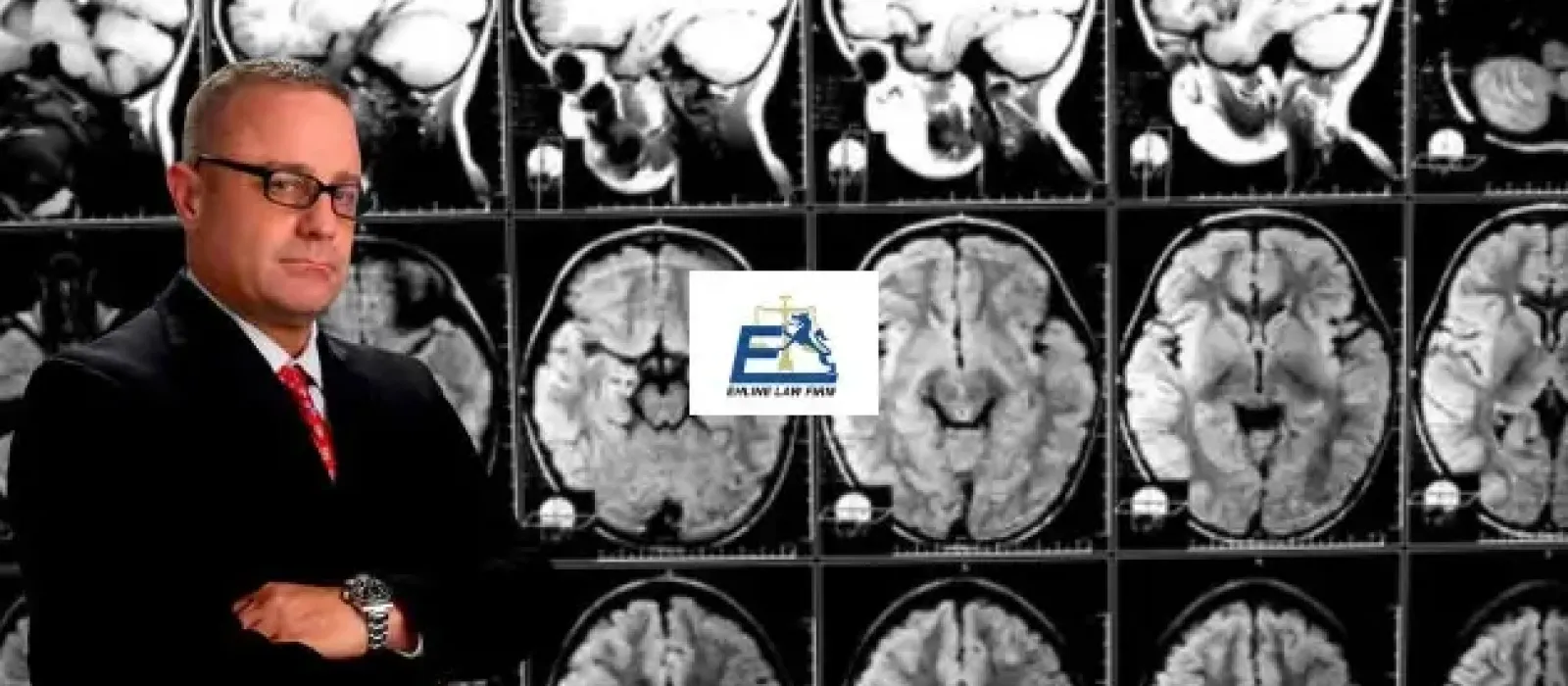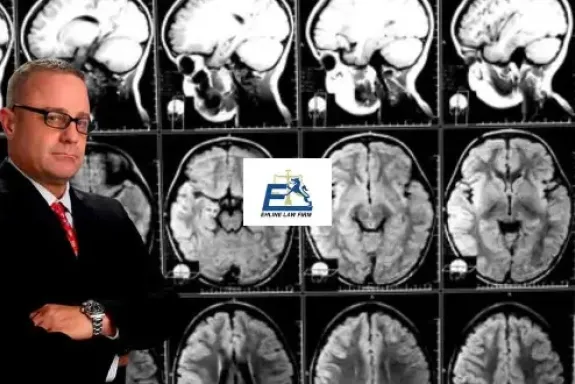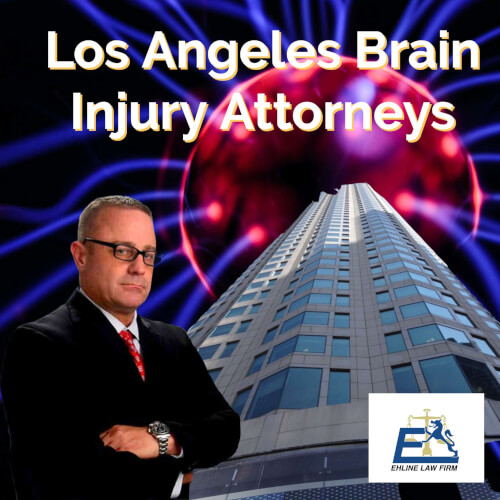

If we don’t win, you don’t pay.
NO WIN – NO FEE

ON CALL 24/7

U.S. Marine

- Former U.S. Marine Trial Lawyer and California Personal Injury Firm.
- We Fight For Brain Injury Victims In Los Angeles, CA.
Tell Us About Your Case
Your brain is in command of your thoughts, memories, communication, movement, and breathing. A significant injury to that essential organ may devastate all aspects of your function and lifestyle. Even seemingly minor brain damage might suffer long-term ongoing financial damage and a lengthy physical and emotional recovery.
Depending on the circumstances relating to your brain injuries, you may be able to seek compensation for medical expenses, missed salary, and assistance to live as normally as possible.
Depending on the specifics of your accident, you may also receive money for physical or mental suffering or other non-economic losses resulting from another party’s reckless, negligent, or willful conduct.
If so, consulting our compassionate and powerful brain injury attorneys in Los Angeles remains vital. Our charismatic staff has used our well-earned reputation and decades of expertise to represent individuals with significant head and brain injuries. In the millions of dollars, we’ve won big verdicts and settlements in brain injury claims.
Our legal team has experience with the medical and rehabilitative assistance you require, and we excel in delivering robust legal representation to seriously injured people suffering brain injuries.
Our Los Angeles brain injury lawyers are essential partners in managing the fallout from significant brain injury cases and skull fractures.
Our Southern California area head injury attorneys help all types of survivors and families recover justice as tough negotiators with the insurance company. Whether the victim suffering brain injuries is an adult or a child, our organization can help recover financial losses for speech difficulties and hospitalization costs.
We can help you through your painful surgeries or wrongful death claim after suffering a hypoxic brain injury or skull penetration injury.
Brain Injury Info Headquarters
Our best Los Angeles brain injury attorney will take swift legal action when someone else’s negligence or wrongful conduct causes skull fractures or related trauma. After forming an attorney-client relationship, our attorneys aim to recover brain damage compensation from the at-fault party’s insurance company or assets. Our lawyer team works on a no-win-no-fee contingency basis.
The personal injury attorneys at Ehline Law Firm have extensive experience and knowledge representing clients with severe head and mild traumatic brain injuries. Our proven record of success includes over $150 Million recovered on behalf of people hurt in all serious California catastrophic injury practice areas, especially brain injuries.
Our legal team’s proven services and results show we’ve secured clients a significant amount of fees, verdicts, and settlements.
Top Brain Injury Video
- $150,000,000+ RETRIEVED FOR WOUNDED CLIENTS SINCE 2005
- OVER 3000+ CLIENTS
- CONTINGENCY FEE BASIS
- CLIENTS TRUST US!
- WE HAVE OVER 15 CALIFORNIA LOCATIONS!
- 24-HOUR PERSONAL INJURY LAWYER
- CLIENT-FOCUSED 360° CONCIERGE SERVICE
- PLUS 5-STAR-HOSPITALITY.
Brain Injury Video Transcript
“Hi. I’m Michael Ehline of Ehline Law Firm Personal Injury Attorneys, APLC. I’m here today to discuss the recovery of money damages for brain injuries. Estimates show that at least
1.5 million individuals are injured from
brain damage each year in the united
states and that the brain injury is
often caused by the actions or negligent
in actions of wrongdoers. TBI or MTBI is
also usually very serious. If you
suffered a brain injury by no fault of
your own contact eline law firm pc at
833 LETS-SUE. Don’t leave money damages on
the table. At Ehline Law Firm we make it
happen you’re not just a file with us
you’re also our friend.”
How Can I Get A Free Consultation With An Experienced Attorney At Ehline Law Firm?
Call our office phone number at (213) 596-9642. Schedule your free consultation and case review 24/7 for more information about justice and your rights related to your brain injuries.
Our trial lawyers will come to you anywhere in Los Angeles, CA, or the United States. Our Los Angeles-based attorneys will answer any questions, offering free legal advice about all types of brain injuries.
Parties Involved in Los Angeles Brain Injuries Can Schedule An Appointment Today For A Free Consultation. Provide information below about any types of brain damage cases.
Comments. Please message us from anywhere in the State of California. Describe your case with detailed information about any negligent parties involved. * All Fields Required. Please include your first name, last name, email address, phone number.
This field is for validation purposes and should be left unchanged. Compatible with internet explorer, Firefox, and Google Chrome. No attorney-client relationship exists until our top Los Angeles Brain injury lawyer says so.
What Are Traumatic Brain Injuries (TBI)?
Many different severity types of brain injuries exist. For example, most clients seeking our Los Angeles brain injury lawyer suffered a “traumatic brain injury” or TBI claim in an accident.
Head injury symptoms can be fatalities or a slight headache. Examples causing a TBI include assault, severe impact driving accidents, or falls from heights. In addition, a blow to the head can shear neurons, killing them, leading to internal hemorrhaging or internal skull pressure.
What Are Acquired Brain Injury Symptoms?
In contrast, an acquired brain injury (ABI) isn’t caused by physical force. Instead, ABIs may result from oxygen deficiency, stroke, or when disease attacks the brain.
An ABI may be caused by someone else’s negligence or wrongful conduct, such as near-drowning, causing a severe brain injury. If a person has suffered an ABI, contact a brain injury attorney in Los Angeles right away to protect your rights to financial results.
Our superior lawyers handle all head injuries or trauma with caring attention. Our expert representation helps resolve any financial or legal situation, including medical bills, income losses, disability benefits, suffering, and damages.
Common Causes of Traumatic Brain Injury Cases
Etiology of a TBI depends upon many factors. Motor vehicle accidents often cause TBI. But the Centers for Disease Control and Prevention (CDC) reports over 50% of TBI accidents involve fall-related circumstances. TBI remains the leading cause of adult deaths over 65 and children younger than 14.
Generally, there are three classifications of TBI,1. mild, .2 moderate, and 3. severe. The second most common TBI involves getting struck by a heavy object.
Here are some more:
- Slip, trip, and fall incidents
- Flying and falling objects
- Blasts and explosions
- Motorcycle accidents
- Rollover car accident
- Bicycle accidents.
More typical causes and patient side effects of ABIs/TBIs in California:
- Asphyxiation/oxygen deprivation from drowning, chemical fires, and smoke (hypoxia)
- Contact sports activities (Ex: boxing, soccer, or football)
- Falls from ladders and construction scaffolding
- Cruise ship man overboard falls (MOB)
- Sexual and physical assaults
- Passenger car accidents.
Annual Head Injury Statistics
Brain Injuries can be debilitating or minor. Around 30% of emergency room visits result from traumatic brain injuries (TBIs) annually. Roughly 1.5 million Americans suffer traumatic brain injuries, making TBIs six times more prevalent than breast cancer, HIV/AIDS, spinal cord injuries, and multiple sclerosis.
Additionally, 50,000 Americans die of TBI annually, while 5.3 million live with TBI disabilities. (Brain Injury Association of America)
Brain injury effects may be hard to detect early. Brain injury victims can seem normally functioning as if no serious injury happened. However, repercussions like gross motor function impairment (partial or total paralysis) may not manifest till later.
But permanent damage from concussions and inflammation after the loss of consciousness from a blow to the head creates life-altering challenges. (like being “punchy” from boxing)
Communication problems and the inability to function in the community may require expensive therapies and long-term support assistance at the hands of neurologists.
Some subtle symptoms of brain injury onset include:
- Hypersensitivity to noise, lights, touch, smell, or taste foods
- Nausea and vomiting
- Ringing in the ears
- Memory loss
- Dizziness
- Vertigo.
Less subtle brain injury symptoms and ability impairments will be noticed right away by a family member, friend, or close loved one as they manifest in physiological and personality alterations. Speak to our Los Angeles brain injury experts to learn more about your traumatic brain injury.
These physical traumatic brain injury changes will include:
- Aphasia (slurred or rapid speech, difficulty expressing language, ideas, reading, or writing)
- Bruising, bleeding, or swelling beneath your eyes, ears, or nasal cavities
- Permanent fatigue and lethargy
- Irritability, rage, anger, anxiety
- Impotence, or sexual deviance
- Agoraphobia in crowds
- Inability to stay awake
- Sadness/depression
- Seizures or a stroke
- Radical mood swings
- Lack of sleep
- Vision loss.
Brain injuries are a major cause of personal injury claims, making people more sensitive to stimuli like light and sound. This can lead individual adults or a child to make impulsive or poor decisions causing bad behavior and life problems.
After a high-force impact on the head, those suffering a severe brain injury may be unaware of their personality changes. However, friends and family may notice a character shift.
In addition, some personality changes will make the victim a stranger in their own home for the rest of a person’s life. Our trial lawyers can discuss your experience during your free consultation.
Who Is Liable For My Traumatic Brain Injuries In Los Angeles, CA?
People with a brain injury diagnosis may no longer be able to work in their careers or perform regular activities. However, in some cases, spouses or a child may recover economic damages when a seriously injured or deceased loved one who contributed to household operations or income becomes injured with a severe traumatic brain injury.
Those who fail to warn others about a hazard may be liable, including those traffic accidents after texting and driving under the influence of alcohol or drug intoxication. In addition, any bad product design, product defects, or negligent roadway maintenance may need representation.
Who Will My Los Angeles Brain Injury Attorney Pursue For Compensation?
Our Los Angeles injury lawyers have vast experience. We’ve successfully beaten vehicle manufacturers and tire makers for flawed products, as well as the City of Los Angeles and CalTrans (Ex: Dangerous construction sites during freeway maintenance causing a collision leading to a traumatic brain injury), or any party who contributed to your compensation claim.

What Compensation Can Brain Injury Victims Recover?
Survivors of TBI are entitled to compensation for medical expenses costing millions, covering ongoing physical and cognitive problems.
Brain injury settlements with insurance or a defendant can recover compensation damage for negligence issues, including:
- Lost past, present, and future wages and earning capacity
- Mental and physical pain and suffering, and impairment
- Wrongful death burial expenses
- Loss of companionship
- Job retraining
- Medical bills.
How Will I Know For Sure If I Have Acquired A Brain Injury?
Some victims may not immediately realize they are more sensitive to confusion and sensory stimuli. But a brain injury can happen to anyone. When an individual suspects differences in their life, our law firm understands this type of injury. We’ll help locate medical experts for medical care recommendations.
Our offices will work hand in hand with your doctor and nurse team to develop an accurate clinical diagnosis and get the treatment you deserve.
Your medical team will detail the nature and extent of your case, including:
- Neurological exam: If a neurologist suspects head injury trouble, you’ll undergo an initial neurological workup testing many body functions. Actions like arms, legs, and body part movement, coordination, and impairment get tested. Your ability to open your eyes, speaking skills, and light sensitivity will be evaluated using the Glasgow Coma Scale.
- Diagnostic imaging: Doctors research injury signs using an MRI or CT scan. However, lack of records or documented objective symptoms, including breathing problems, headaches, memory loss, or other consequences, cause courts difficulty determining severity.
- Neuropsychological exams: Neuropsychological testing can identify specific areas of harm/impairment caused by a brain injury. However, if you have a high level of intelligence, you may score in the normal range even when experiencing deficits from an injury to your brain matter. Quality and testing accuracy remains best if a baseline record existed before the injury. Without these vital resources, the diagnostic process remains less than an exact science.
- Personal evidence: For validation purposes, various observations from parties like close family members, friends, and fellow workers can detail the patient’s past reputation for personality disorders. The doctor’s office will use these records to assist in a brain injury diagnosis. A physiatrist, a specialist in rehabilitation medicine, interviews the injured person’s companions over any changes observed in the individual’s case, including lost capabilities.
Who Will Treat My Traumatic Brain Injury?
Your general medical practitioner will recommend an emergency care consultation at the hospital. Care for brain injuries following a TBI may cost you expensive surgery and powerful medication. In addition, patients may undergo time-consuming rehabilitation to complete daily tasks no matter their age or prior life abilities.
A plaintiff with such claims will need an understanding amount of compassion from:
- Allied health professionals, including diagnostic medical sonographers, dietitians, social workers, medical technologists, occupational therapists, physical therapy treatments, radiographers, respiratory therapists, and speech-language pathologists.
- Physical Medicine and Rehabilitation (PM&R) specialists
- Neuropsychologist, clinical psychologist
- Rehabilitation nursing care
- A spouse or family member
- Vocational rehabilitation
- Orthopedic surgeons
- Neurosurgeon
With each compensation claim, recovery time varies on a case-by-case basis. Litigation against the responsible parties can follow without a settlement. Cognitive brain injury rehabilitation is helpful to maximize financial recovery money and quality of life in all traumatic brain injury cases.
Finding the Right Traumatic Brain Injury Lawyer in Los Angeles, CA
Ehline Law Firm’s best brain injury lawyer provides a compassionate, free consultation on account of all head trauma clients.
We’ll listen and discuss the facts of your case surrounding your traumatic brain injuries. Once our Super Lawyers establish an attorney-client relationship, fees for personal injury cases are on a contingent fee basis. (we get nothing out of your brain injuries action till you’re paid compensation).
Head trauma lawsuits can cause stress or anxiety. Therefore, your lawyer selection is critical. Our personal injury law firm offers compassionate legal representation.
Our traumatic brain injury (TBI) lawyer in Los Angeles helped have vigilantly assisted thousands of clients recover significant awards in serious traumatic brain injury case matters.
Get the responsibility and attention you and your loved ones deserve for your brain injuries with a free consultation and a winning outcome. Call us today at (213) 596-9642 or use our online contact form to send details to a great injury lawyer in Los Angeles today.

